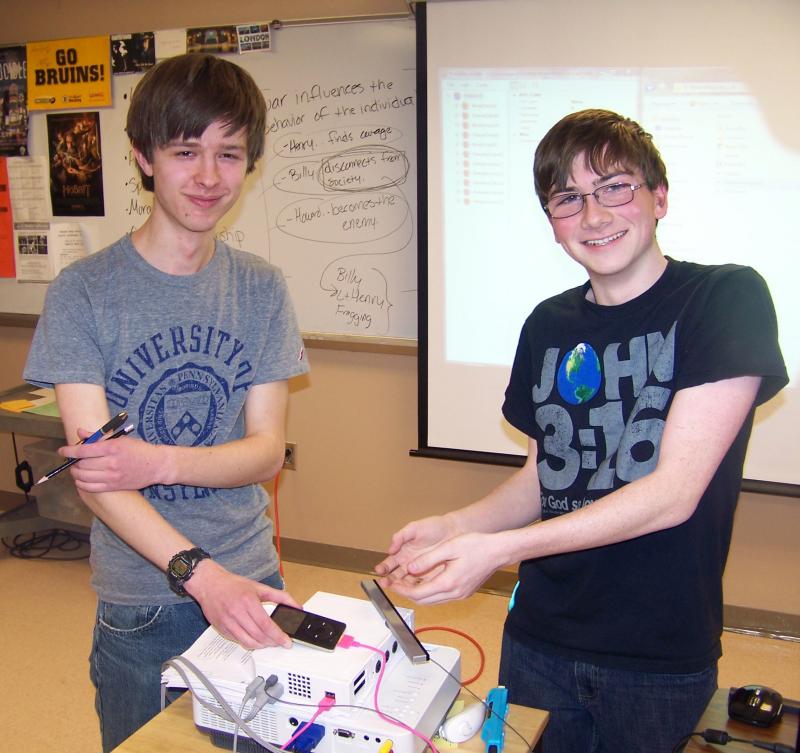ORR Computer Science club faces the future
A group of high school students are learning a new language. It’s not spoken, but if it suddenly became indecipherable anyone using a computer, smart phone or video game would be at a loss for words.
At Old Rochester Regional High School’s new Computer Science Club five students are helping each other learn computer “code” – the instructions that govern our digital lives.
Senior John Hewitt started the club this year to give students a place to learn about a challenging field.
“We want to help people who join the club to get over that initial, steep learning curve,” he said. “We try to make it easier for students who want to learn by offering them a teacher or mentor.”
Hewitt, who plans to study computer science in college, said he noticed ORR had groups geared toward other fields, such as medicine and engineering. He hopes the club gives someone considering computer science as a career a place to check it out.
Hewitt admits it’s a difficult area of study to get into.
“It’s not an accessible field. It’s kind of daunting for people,” he said. But those who do pursue it may be setting themselves up for success.
According to the U.S. Bureau of Labor Statistics, computer science jobs are projected to grow 15 percent from now until 2022. That rate is double the 8 percent average growth projected for other occupations.
Bureau figures also project that by 2020 there will be 1.4 million new jobs in the field, even though estimates show that 400,000 computer science students will be trained to fill those jobs.
Hewitt said club members don’t necessarily join the club with a career path in mind. It’s for any student with an interest in computer science, whether they start with zero skill or want to help others see what can be accomplished through coding.
Club member Bill Wentworth demonstrated a project to the club recently. Using a method called “brawl breaking,” he showed how to manipulate the code for Super Marion Smash Brothers Brawl, a video game for the Nintendo Wii.
With an old iPod, a memory card and the Wii system, Wentworth showed club members how to rewrite computer code and change how the game is played.
“It’s possible to make the characters stronger or die more easily – really anything you can think of,” Wentworth said. “You can really do a lot with technology that’s around the house.”
That may sound like a hack - and it is - but Hewitt says the term isn’t the scary one it’s often made out to be.
“People hear ‘hacking’ and they think, ‘oh no, that’s bad.’ But hacking just means making modifications to any system to suit your needs,” he said.
There are practical applications to hacking such as testing a company’s security software.
Right now, Hewitt and club members are focused on writing code for a chess video game for a new project.
“It’s been done before, but it’s an interesting group project,” he said. “You’re trying to teach a computer chess strategy.”
Also, he wants to add an interactive element to the program so two people can play a game of chess over the Internet.
Hewitt graduates in May and wants the club to continue after that. Eventually, he hopes the club will develop a video game or some other code related project.
Hewitt notes that having a club at ORR that addresses computer science is something that future code writers will benefit from. He says, “It’s so important. Computers will only get more complicated.”















